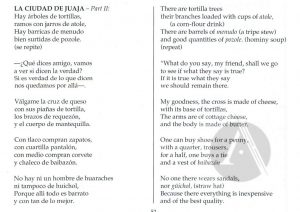Immigration has always been a point of contention in the United States, because it proposes the discussion of who is American and who is included in the American identity. White settlers in the 1920s were legally considered American, since they had lawful access to citizenship, but there were so many others who contributed to the production of American culture: producing economic commodities, music being one of them. Throughout the 1920s and the Great Depression, Mexican immigrants were recruited to work in the Southwest of the United States participating in the railroad, mining, and agricultural industries. Music is able to depict the commonality of experiences, but also differentiate these conditions for Mexican immigrants and white people during the 1920s and 30s. Tracing back to the medieval myth of Cockayne or Cucaña, which speaks of a utopia where hardship does not exist. Songs such as “The Big Rock Candy Mountains” and “La Ciudad de Juaja” that describe the idealizations of life during the Great Depression, allow us to understand what living conditions and their respective hardships were like for White workers and Mexican immigrants. For example, in “The Big Rock Candy Mountains” Harry McClintock describes “cigarette trees” in comparison to “La Ciudad de Juaja,” Pantaleón Ramos and Manuel Treviño describe “árboles de tortillas, ramos con jarros de atole” (trees of tortillas, [and] branches with cups of atole*) (*a warm drink of Mexican origin.) The common use of the word tree, to describe natural resources and abundance, and the idealizations of what there would be abundance of help us to understand the different priorities of what is necessary, or brings pleasure to each of these groups of people. In this case, tobacco versus culturally traditional food. In both of the songs as well, they mention punishment for work. In “La Ciudad de Juaja” the lyrics say “allí le dan de palos al que quiera trabajar (there they beat those who want to work)” and in “The Big Rock Candy Mountains” the lyrics mention “they hung the jerk that invented work.” I think the most important conclusion to draw from each of these songs is that there was (to an extent) a common experience of mine and railroad workers during the Great Depression. While it is important to recognize that Mexican migrants experienced different and additional challenges due to people “honragados dishonest* ” taking advantage of immigrant labor and language barriers, the similarities in each of these songs creates a sense of identity based on the hardships that were experienced in these working conditions during this time period of American history. Another thing that I thought about while writing the title for this post, was the relevant role that work culture plays in American identity today. Again, it is important to note that these conditions look different for different groups of people, and I don’t intend to neglect the complexity of America’s job industry or make a statement that encompasses all Americans, but there is some validity in that the United States has become a place for work, and has come to define many American experiences.
*honragado is no longer a word used in the Spanish dictionary but was used in the lyrics of this song in the 1930s to describe a deceiving person. A current translation of “dishonest” would be deshonrado.
Corridos y Tragedias De La Frontera- CD 1: La Crisis1994., edited by Chris StrachwitzArhoolie Records. https://search.alexanderstreet.com/view/work/bibliographic_entity|recorded_track|390149.

